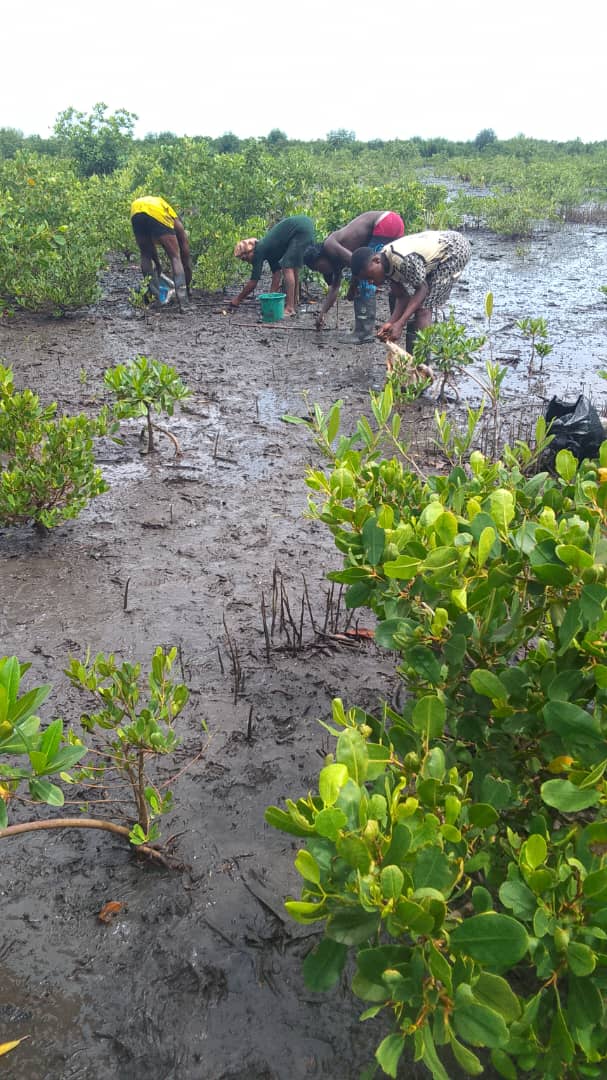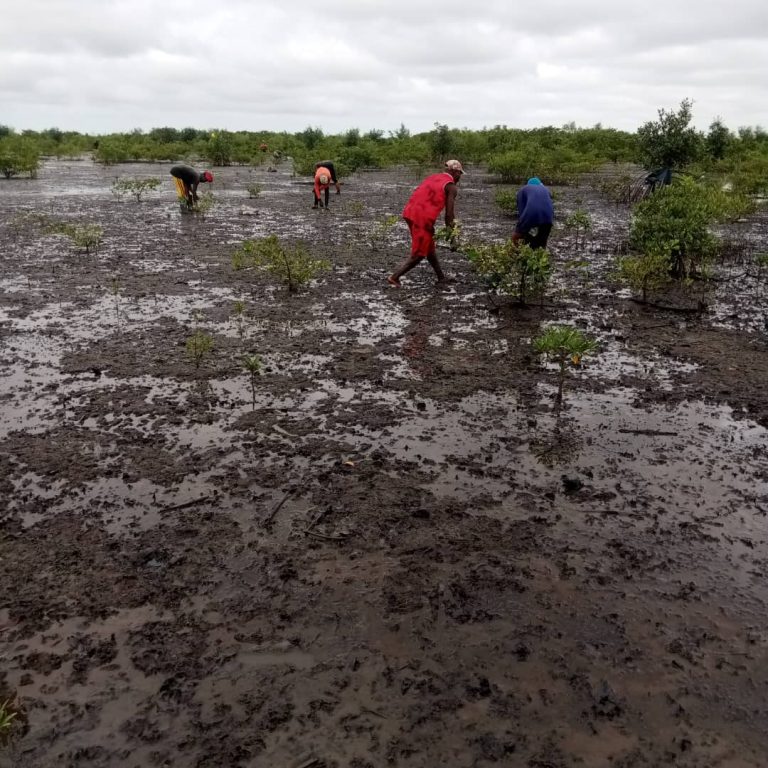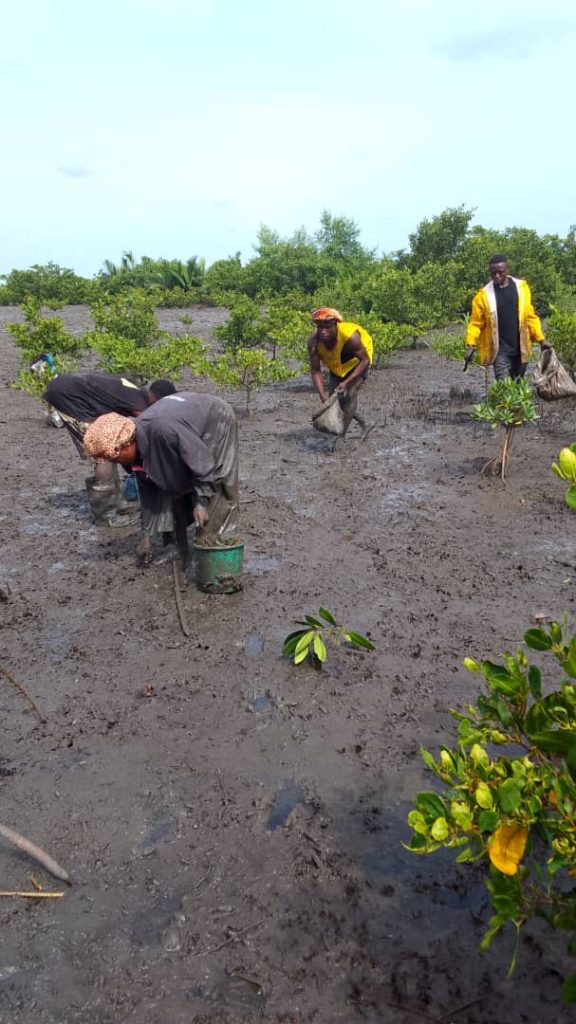Agba-Okwan Asarama
Mangrove Restoration Project.
APRIL 2024
ONGOING
RESTORATION PROJECT
The Niger Delta, located on Nigeria’s Atlantic Ocean coast, is one of the world’s largest wetlands, supporting over 20 million people and a rich array of biodiversity. However, the region’s ecosystems have degraded over the years due to illegal logging and other harmful activities, disrupting the balance between plant and animal life. Mangroves, a keystone species, have been particularly affected. These forests are essential for capturing and storing carbon dioxide, making them critical in the fight against climate change.
The Agba-Okwan Asarama community in Rivers State spans over 2,000 hectares of mangrove forest but, like much of the Niger Delta, has experienced significant degradation due to human activities.
To address this, the Agba-Okwan Mangrove Restoration Project (AMRP) has been launched to restore the mangroves, increasing awareness of their value and reforesting degraded areas. The project aims to plant at least 500,000 red, black, and white mangroves every year, helping to restore the ecosystem and create alternative livelihoods for local residents.
As a blue carbon project, it will also play a crucial role in reducing atmospheric CO2 levels by storing carbon in coastal ecosystems. By restoring these vital habitats, the project will contribute to both environmental sustainability and community resilience.
Short term – By integrating the local population into the restoration process, the project empowers them with new skills and knowledge, fostering long-term economic resilience while providing over 100 jobs for men and women in the project community.
Long term – Restoring the mangrove ecosystem will support local fisheries, boosting food security and income generation for the community.

The project will enhance community cohesion and awareness. By involving local stakeholders in restoration activities, the initiative fosters a sense of ownership and responsibility for environmental stewardship.
This increased knowledge and engagement will inspire ongoing conservation efforts and ensure the sustainability of the mangrove ecosystem for future generations.




AMRP, ENESI












